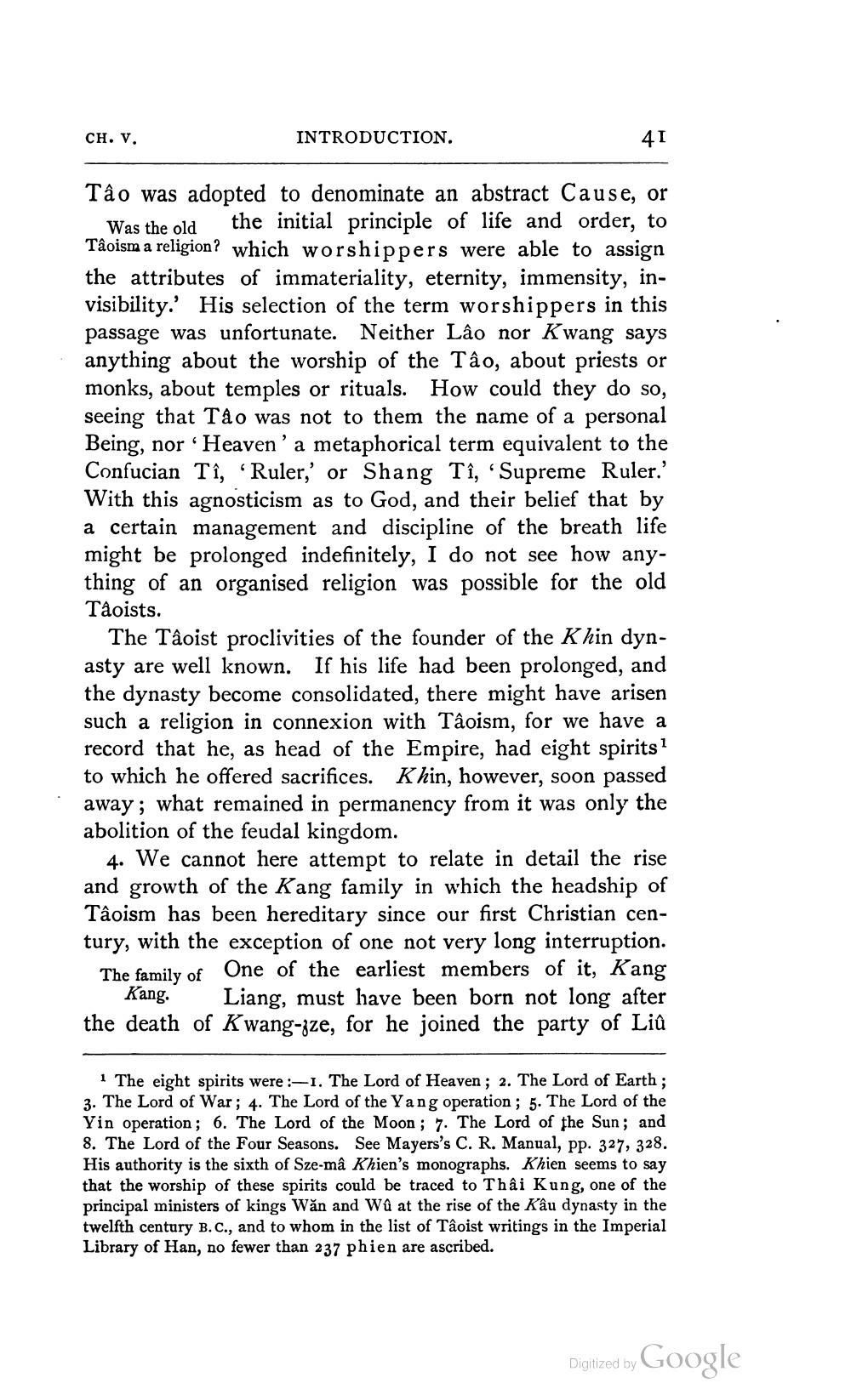________________
CH. V.
INTRODUCTION.
41
Tâo was adopted to denominate an abstract Cause, or
Was the old the initial principle of life and order, to Tâoisma a religion? which worshippers were able to assign the attributes of immateriality, eternity, immensity, invisibility. His selection of the term worshippers in this passage was unfortunate. Neither Lâo nor Kwang says anything about the worship of the Tâo, about priests or monks, about temples or rituals. How could they do so, seeing that Tao was not to them the name of a personal Being, nor · Heaven' a metaphorical term equivalent to the Confucian Tî, 'Ruler,' or Shang Tî, Supreme Ruler.' With this agnosticism as to God, and their belief that by a certain management and discipline of the breath life might be prolonged indefinitely, I do not see how anything of an organised religion was possible for the old Taoists.
The Taoist proclivities of the founder of the Khin dynasty are well known. If his life had been prolonged, and the dynasty become consolidated, there might have arisen such a religion in connexion with Taoism, for we have a record that he, as head of the Empire, had eight spirits? to which he offered sacrifices. Khin, however, soon passed away; what remained in permanency from it was only the abolition of the feudal kingdom.
4. We cannot here attempt to relate in detail the rise and growth of the Kang family in which the headship of Tâoism has been hereditary since our first Christian century, with the exception of one not very long interruption. The family of One of the earliest members of it, Kang
Kang. Liang, must have been born not long after the death of Kwang-zze, for he joined the party of Lill
1 The eight spirits were :-1. The Lord of Heaven ; 2. The Lord of Earth ; 3. The Lord of War; 4. The Lord of the Yang operation; 5. The Lord of the Yin operation; 6. The Lord of the Moon; 7. The Lord of the Sun; and 8. The Lord of the Four Seasons. See Mayers's C. R. Manual, pp. 327, 328. His authority is the sixth of Sze-mâ Khien's monographs. Khien seems to say that the worship of these spirits could be traced to Thai Kung, one of the principal ministers of kings Wăn and Wû at the rise of the Kâu dynasty in the twelfth century B.C., and to whom in the list of Taoist writings in the Imperial Library of Han, no fewer than 237 phien are ascribed.
Digitized by Google




